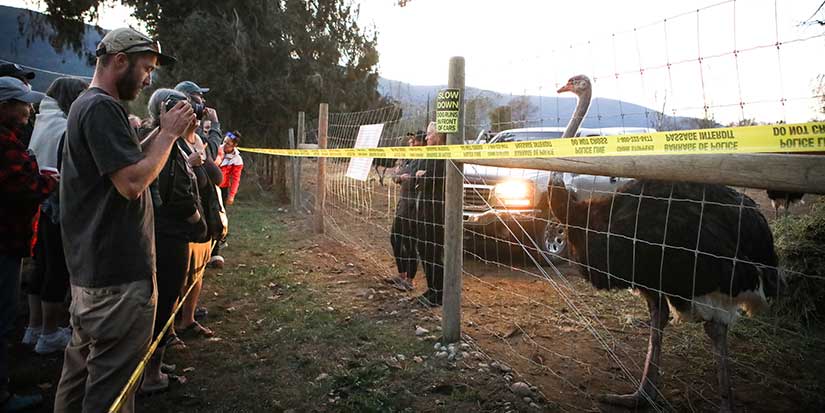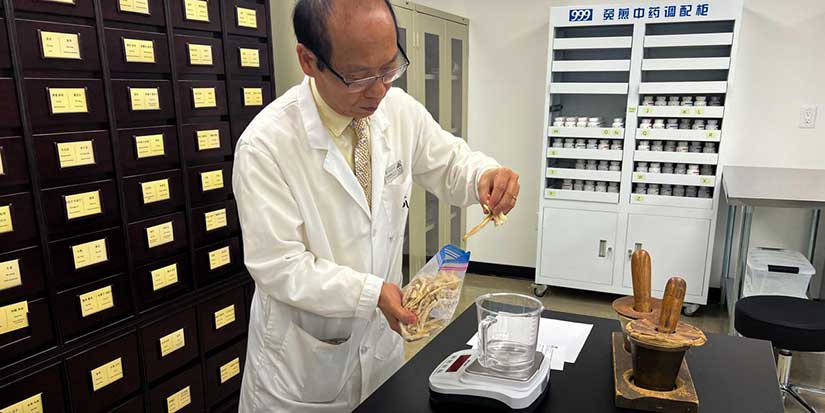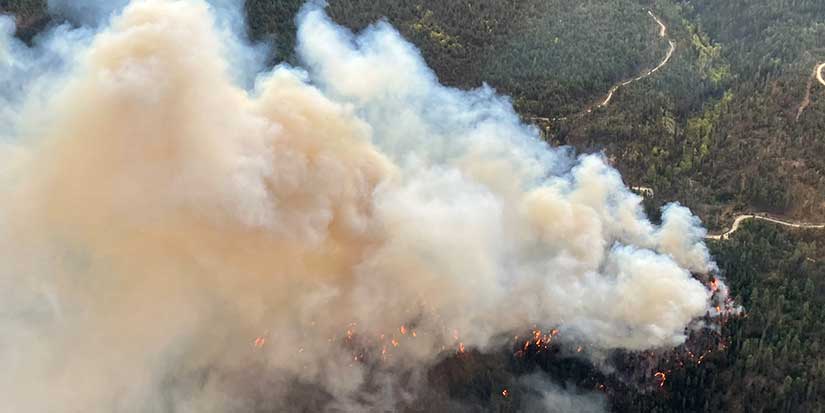Provincial News
Stay of ostrich cull in southeast B.C. an ongoing potential health risk, CFIA says
Published 10:55 PDT, Fri September 26, 2025
Last Updated: 2:26 PDT, Fri September 26, 2025
—
The Canadian Food Inspection Agency says the "ongoing delay" in carrying out the cull of ostriches at a British Columbia farm presents "potential animal and human health risks."
The agency said in a statement Friday that it will continue to feed the birds under veterinary oversight, and it will be using the feed provided by Universal Ostrich Farms' regular suppliers.
There are between 300 and 330 ostriches on the farm in southeastern B.C., and work on determining a more precise count is ongoing, the agency said.
It has also identified one ostrich on-site "with compromised health" but the statement doesn't say what is wrong with it.
The birds on the farm have been given a temporary reprieve after the Supreme Court of Canada issued a last-minute stay of the cull earlier this week.
The court said the stay will be in force until it makes a decision on hearing the case, and if it does rule there is a valid argument for appeal, the birds will remain alive until the court rules on the case by Universal Ostrich Farms.
The cull was ordered after an outbreak of avian flu at the farm, but the farm's owners have challenged the move saying the birds that survived are healthy and scientifically valuable.
A Federal Court and Federal Court of Appeal have rejected their arguments.
The agency said that following confirmation of the outbreak, a laboratory in Winnipeg isolated the virus and completed whole genome sequencing.
The virus is a "novel reassortment" not seen elsewhere in Canada, it said, including a genotype that has been associated with a human infection in a poultry worker in Ohio.
"Laboratory analysis also found this novel reassortment event has enhanced the pathogenicity of this particular H5N1 genotype," the statement said.
"Even minimal quantities of the virus could be lethal, with a rapid time to death of four to five days in mice exposed to even low doses. By comparison, the B3.13 genotype (originating from a USA dairy cow) resulted in mortality within three to six days, but only at substantially higher doses."
CFIA officials, who arrived at the farm with the RCMP on Monday, have maintained custody of the birds since the stay order was issued.
The case has drawn international attention. Supporters are camped out at the farm and there has been a significant online campaign to try and stop the cull.
Earlier this week Mounties said they were investigating threats of violence against businesses involved in the CFIA operation, including one that reported receiving threats of having its offices shot at.
The ostriches case has also come up in the House of Commons.
On Wednesday, Conservative Kamloops-area MP Mel Arnold questioned Health Minister Marjorie Michel about the case, saying Canadians are looking to the government to explain why the cull is necessary.
"Canadians want to know why the Liberal ministers did not work with the agriculture sector to resolve this issue," he said.
Michel responded that she is "working very closely with the minister of agriculture," but won't comment more as the case is before the courts.
The CFIA says it has a stamping-out policy for farms where birds are infected with the avian flu to protect human and animal health and international trade access.
The agency has said that wild birds are believed to be main cause of the infections and outbreaks in the last three years have spiked during migration periods.
Millions of birds in Canada have been ordered destroyed by the CFIA since 2022, most of them in commercial flocks.
– Ashley Joannou, The Canadian Press
With files from Sarah Ritchie in Ottawa.








































